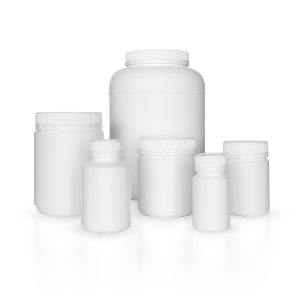


Health
J J 15 Jul 2019
Saccharomyces Boulardii Benefits
Share
What is Saccharomyces Boulardii?
Saccharomyces Boulardii is a yeast which is often used as a probiotic in treating conditions such as diarrhoea, candida, travellers’ diarrhoea and can assist with Crohn’s disease.
The strain of non-pathogenic yeast was first discovered in 1920 in French Indochina by Henry Boulard. He first discovered Saccharomyces Boulardii when he observed natives of Southeast Asia chewing on the skin of lychee and mangosteen in an attempt to control the symptoms of cholera (a bacterial infection of the small intestine).
S. Boulardii has shown to be a non-pathogenic, transient yeast – it is hardy, acid-resistant and temperature tolerant and not affected by antibacterial agents. In healthy patients it has shown to remain in the gastrointestinal tract rather than spread throughout the body.
S.Boulardii has been shown in multiple clinical studies to benefit human health, including reducing diarrhoea as a result to antibiotics and travellers’ diarrhoea. It is also used as a probiotic to introduce active cultures into the large and small intestines, as well as offering protection against pathogenic microorganisms.
Benefits
S.Bourlardii can be a vital supplement to aid in the recovery of many illnesses and chronic diseases. It’s shown to help with treating diarrhoea, traveller’s diarrhoea, antibiotic diarrhoea, IBS symptoms, Crohn’s Disease, Candida and Clostridium Difficile Infection.
Prevents and Treats Diarrhoea
S. boulardii has been shown to help prevent traveller’s diarrhoea, Antibiotic Diarrhoea and other types of diarrhoea. There is increasing evidence that the microflora in the gastrointestinal tract is a major regulator for the immune system for the gut and other organs. S.Boulardii has demonstrated clinical and experimental effectiveness in intestinal diseases with an inflammatory component, indicating that S.Boulardii might interfere with pathways common in many inflammatory conditions.
A study on 100 hospitalised children showed that the treatment of S.Boulardii for 5 days significantly reduced the mean duration of the diarrhoea, frequency of stools and found it normalises stool consistency.
IBS
Irritable bowel syndrome (IBS) is a disorder that affects the intestines. It’s characterized by abdominal pain, altered intestinal habits, cramping, bloating, gas, diarrhoea and constipation. A study was conducted with mesalazine, known for intestinal anti-inflammatory properties and Saccharomyces boulardii, as a probiotic. Symptoms were tested in four categories, stool frequency, stool form and consistency, abdominal pain and distension.
The use of mesalazine alone, Saccharomyces boulardii alone or combined treatement with mesalasine and Saccharomyces boulardii improved IBS symptoms.
Crohns Disease
Crohn’s disease is a chronic inflammatory disease of the intestines, especially the colon and ileum, associated with ulcers and fistulae. A number of studies have been conducted to decipher the benefits of the role of S.boulardii in the maintenance treatment of Crohn’s disease.
Taking S.boulardii seems to reduce the number of bowel movements in people with Crohn’s disease. A study conducted with both mesalasine and S.boulardii can help people stay in remission longer, but further studies need to be conducted on the use of S.boulardii alone.
A study of 32 patients with Crohn’s disease who were in remission found that significantly less patients who were treated with S.Boulardii relapsed than the control group.
Candida
Candida is known as a fungus that grows in the gastrointestinal tract of healthy people, but when it overgrows it can afflict countless mental and physical symptoms. An overgrowth of Candida is called Candidiasis. Research has found that S.Boulardii will pass through the gastrointestinal tract in less than a week, driving out the bad Candida in the process. S.boulardii can cause gas and bloating if you do have a lot of sugar in your diet, it’s important to take it after you have avoided sugar and processed grains for two or three days.
Summary
S.Boulardii can be beneficial to treating or preventing many gastrointestinal diseases as it has been found to mediate the effects which resemble healthy gut flora. Although no adverse effects were observed in any of the clinical trials, caution should be taken in patients with risk factors for adverse events such as immunocompromised patients.
CYOS blog content is for informational and educational purposes only, and should not be considered medical advice, diagnosis or treatment recommendations. Always consult with your doctor or medical professional before using any dietary supplements or if you suspect you have any medical concerns or issues.
Share
SHOP OUR PRE-MADE CAPSULES RANGE
100% Pure • Encapsulated in Australia • Vegetarian Capsules • No Fillers • No Additives • No Binders • No Anti Caking Agents • Allergen Free • No Preservatives • Non GMO
Our best sellers
 Search Products
Search Products
 All Products A-Z
All Products A-Z
 Pre-Made Capsules
Pre-Made Capsules
 Additives
Additives
 Amino Acids
Amino Acids
 Anti-Oxidants
Anti-Oxidants
 Beauty
Beauty
 Bioactive Compounds
Bioactive Compounds
 Bulk Items
Bulk Items
 Empty Capsules
Empty Capsules
 Fats & Oils
Fats & Oils
 Fibers
Fibers
 Herbal Extracts
Herbal Extracts
 Joints
Joints






 Mushroom Extracts
Mushroom Extracts Nootropics
Nootropics Packaging
Packaging Probiotics & Digestion
Probiotics & Digestion Proteins
Proteins Sleep
Sleep Stimulants
Stimulants Super Blends
Super Blends Super Foods
Super Foods Tools
Tools Vitamins & Minerals
Vitamins & Minerals Weight
Weight Workout
Workout